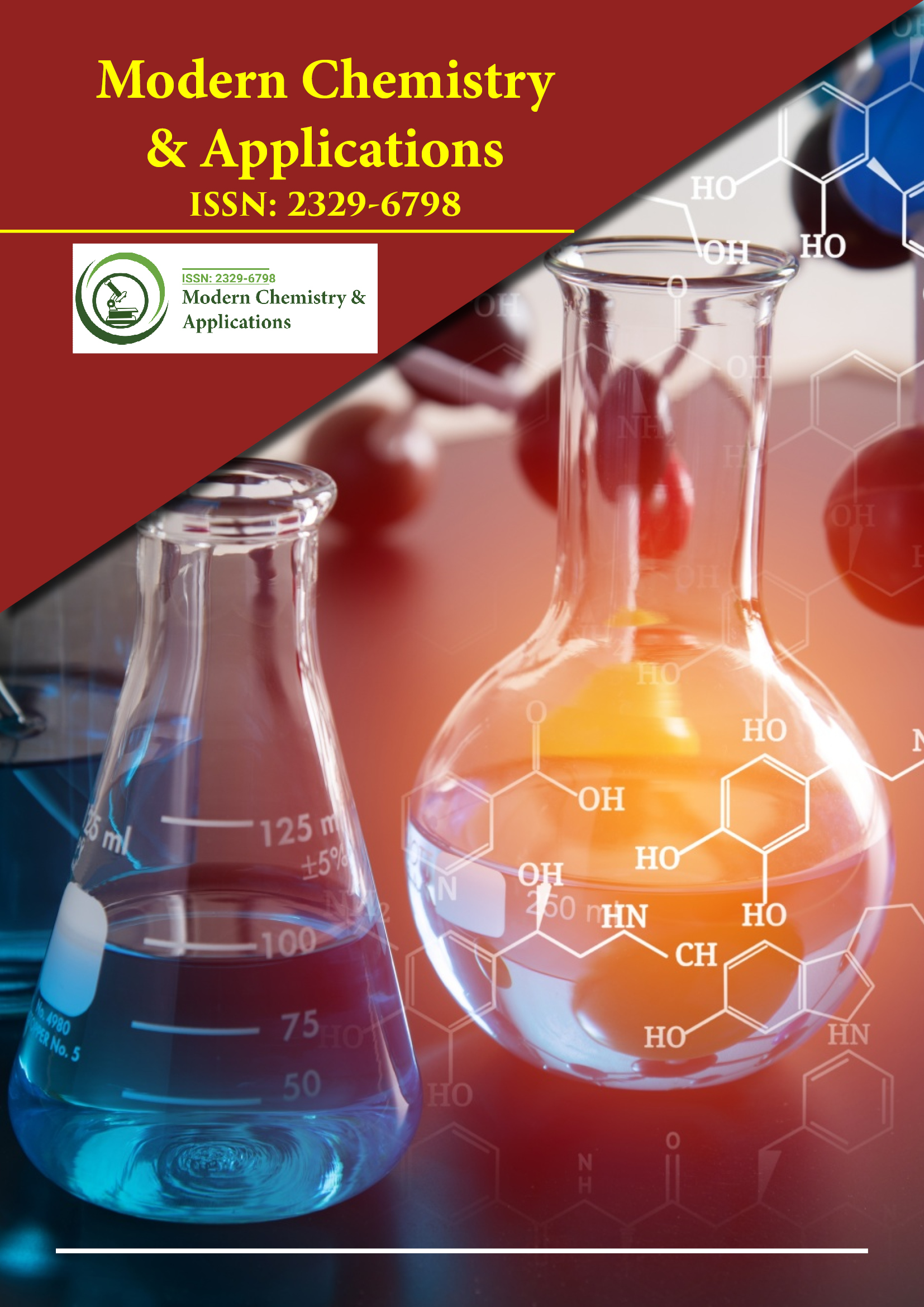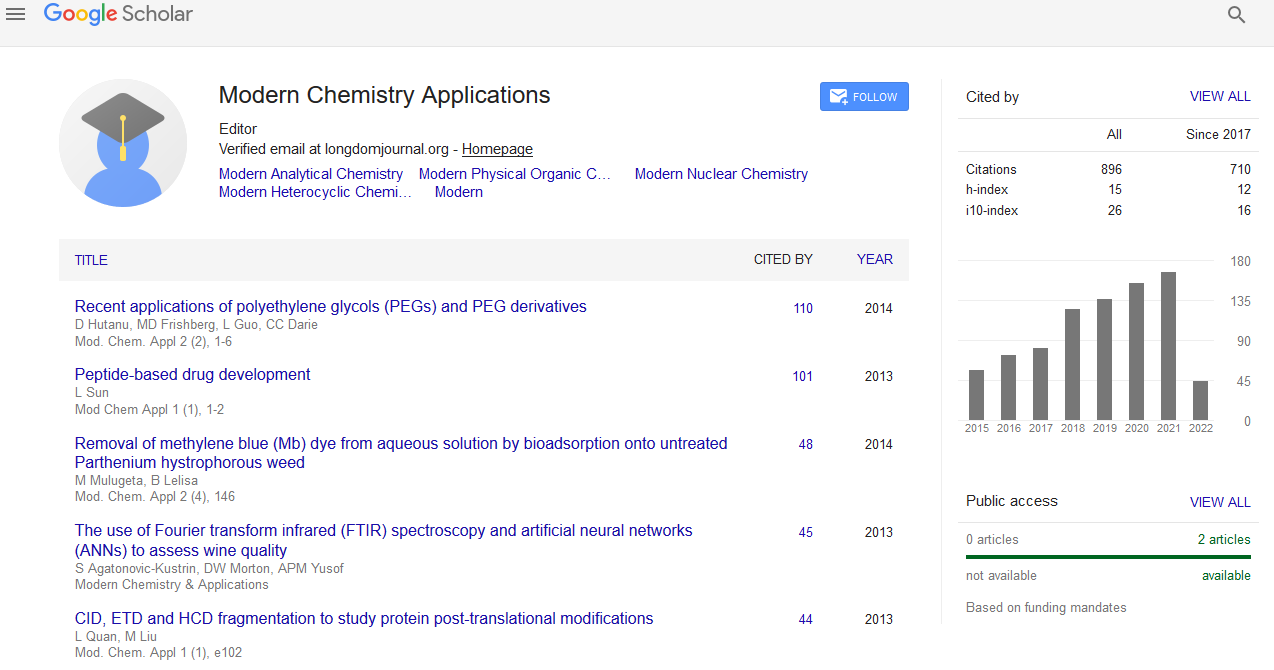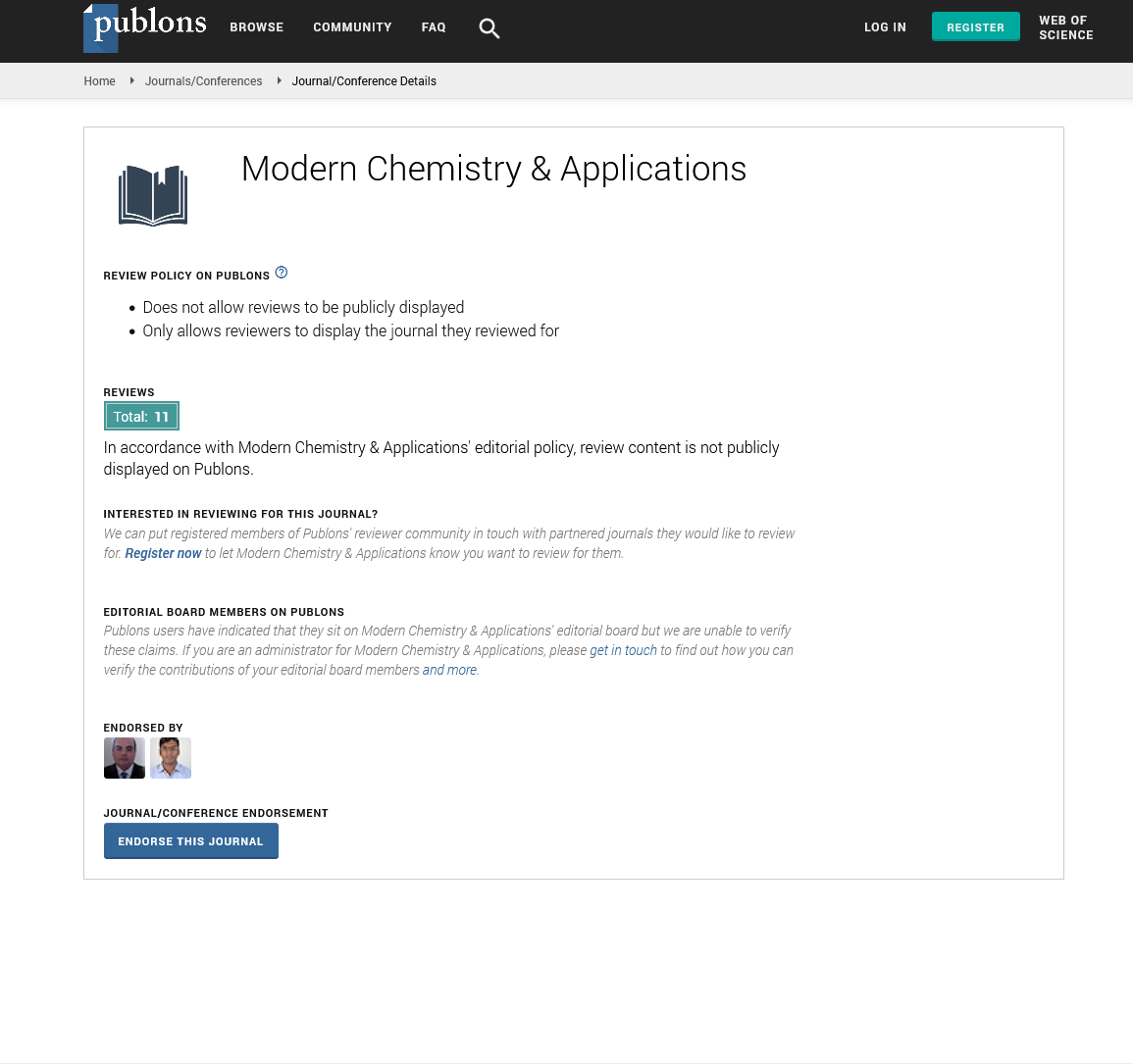Indexed In
- Open J Gate
- JournalTOCs
- RefSeek
- Hamdard University
- EBSCO A-Z
- OCLC- WorldCat
- Scholarsteer
- Publons
- Geneva Foundation for Medical Education and Research
- Google Scholar
Useful Links
Share This Page
Journal Flyer

Open Access Journals
- Agri and Aquaculture
- Biochemistry
- Bioinformatics & Systems Biology
- Business & Management
- Chemistry
- Clinical Sciences
- Engineering
- Food & Nutrition
- General Science
- Genetics & Molecular Biology
- Immunology & Microbiology
- Medical Sciences
- Neuroscience & Psychology
- Nursing & Health Care
- Pharmaceutical Sciences
Abstract
Preparation and Evaluation of Adsorption Effectiveness of Peanut Husk for the Removal of Fluoride Ion from Aqueous Solution
Fluoride is one of the largely abundant elements occurring in groundwater in Ethiopia and creates a major problem out of harm's way groundwater supply. Occurrence of fluoride above the set limit in drinking water consumed by human beings has caused multi-dimensional physical condition tribulations. The present study describes the preparation of low cost adsorbent and to evaluate its adsorption efficiency for removal of fluoride ion in artificially prepared waste water using peanut husk powder. The set adsorption study was applied to study the defluoridating effectiveness by varying contact time, adsorbent dose, adsorbate concentration, and pH. Prepared adsorbent showed better removal of fluoride by 82.3% at equilibrium contact time of 80 minutes. The adsorption information appeared to be well integral to both the Langmuir and Freundlich isotherm model. The adsorption capacity (qm) and adsorption coefficient (b) was obtained as 22.6 mg/g and 0.14 L/mg respectively and the results are suggesting that the treated peanut husk has a reasonable defluoridating capacity and could be considered as an effective and appropriate adsorbent for a sustainable solution to mitigate the fluoride problem. This study is a step in developing a general platform suitable for producing potable water that also specifically addresses the problem of fluoride.


